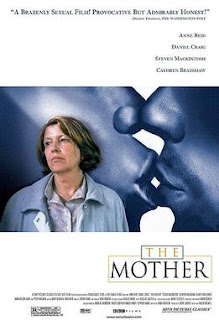Summary and analysis, by Elisa Sola Ramos
Briefly, the summary of the story is an incident of
everyday life: John, a 47-year-old architect, accompanies his wife to the
station to catch the train: she has to go to see his brother who is dying. John
doesn’t go with her because he can’t stand his brother, and makes a secondary
excuse that he has work. She doesn’t mind that he doesn’t accompany her,
either. Just after leaving the woman, he realizes that he has left his keys in his
zip-up jacket pocket inside the house and finds himself locked out of the
house. Then, he notices that the neighbour’s housekeeper is there, and he knocks
on the door for her to help him into his house. They make love.
As in many of Graham Swift’s stories, an incident of
everyday life (in this case, forgetting the keys) serves to reflect on one’s
own life. In our story, being shut out of the house helps John to see his own
life from a distance, as if he was a stranger. And this is what John does: a
47-year-old architect, with a comfortable life and married to Clare, shows us a
conventional slice of life of a well-to-do middle-aged couple, and we see the
loneliness of the characters at every moment. Clare doesn’t count on him when
it comes to her family (“He’d be peripheral. He was just a husband.”) and John
had an affair with his colleague - or superior - at work and didn’t tell his
wife, even though she knew (“she had her inklings”). The couple leads a
conventional life, with jobs that are not perfect, and they are burdened with
their loneliness.
The other character is the cleaner, a girl no more
than 25 years old, foreign, with little command of the language. There is a
great distance between John and the cleaner, to highlight the man’s power over
the woman: age, purchasing power, culture... It’s a full-fledged league, but
both characters are completely alone, they are strangers to their own life.
They meet at a given moment and make love, but they make love to themselves
because they never break the distance that separates them, at no time do they
communicate.
Weather is an essential element in the story. As in many of the stories we have read, time is another character. In fact, it is the element that creates the right atmosphere. With a short story, this is very useful, because a few words create an atmosphere. In this case, the rain draws a curtain between him and his own life. It begins that four drops fall and ends that it rains in torrents and torrents, and that gives the tone and context of the story.
As always, a good image illustrates the entrance of the blog: an old and unpainted heart as a keyring, like the relationship between the two main characters. What really brings people together? Does John need Claire to appease his predatory instincts, his “stray animal inside him”, to get the stability he wants, against his impulse? Does Claire need John for her strength, as opposed to her brother and family? Why do people stay together if they feel lonely? It is the great question of our story.
QUESTIONS
What kind of goodbye do you prefer? A short one? A
long one? When it’s you who goes away? When it’s you who stays?
What do you think of families? What is it better for a
person, relatives or friends?
“He was just a husband.” Do you think a husband will
always be peripheral? They say the first person old widows forget is their
husband. Is it true?
“Weak men got ill and die.” Do you think character and
constitution decide over life and death?
For you, what is a feeling? Are feelings logical? Can
you control your feelings?
What is your opinion about saying always the raw
truth?
Did you lose your keys any time? Do you have a story
about this?
What will happen to the residents of Neale Road?
Ugly names: can a name be ugly? Can a name decide if a
person is attractive or plain?
What do you know about Moldova?
Do you think we have an “animal inside us”?
Is a paraphilia to need to make love in any other’s
house?
What is your opinion about the famous sentence: “No
news, good news”?
What do you imagine it is going to happen then? Is
Clare going to know about it? If yes, is she going to pardon him? Is their
marriage going to last long?
VOCABULARY
spared, forecourt, got on with, spared, stifling, spot,
inklings, riddle, terraced, manhandling, squirmed, tackle, put up with, unremitting,
none-the-wiser, feral, bucketing, proneness, have that one there, sanctuary, knuckle
down







